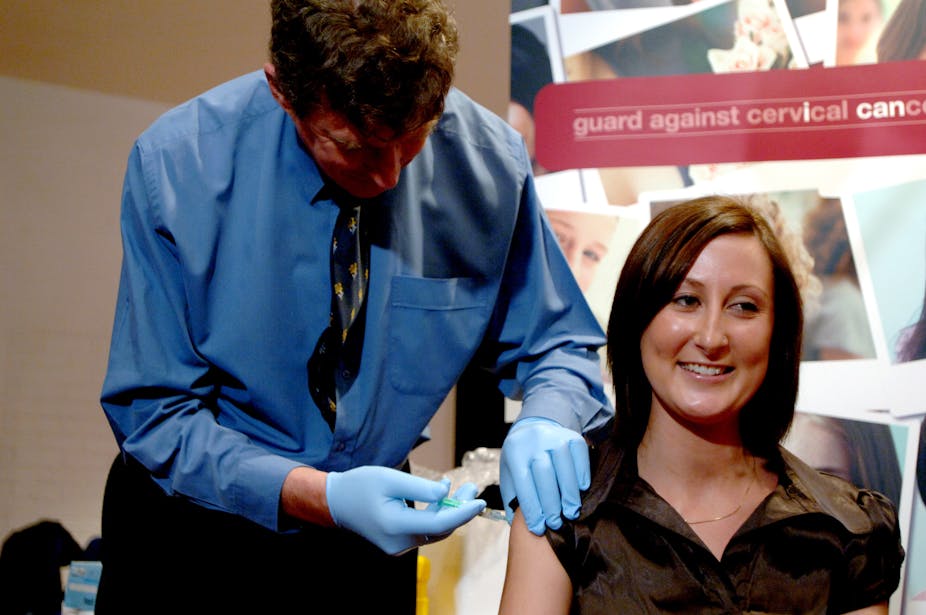A large US study has added further support to the safety of the Australian-developed human papillomavirus vaccine (HPV4).
The study, published in Archives of Pediatrics & Adolescent Medicine, included 189,629 girls and young women, and found there was no evidence of serious safety concerns secondary to HPV4.
The study found the vaccine appeared to be associated with fainting on the day of vaccination, an issue more generally associated with immunisation and needles, as well as skin infections in the two weeks after vaccination. However the researchers commented that some of the cases may have been local injection site reactions.
“These findings support the general safety of routine vaccination with HPV4 to prevent cancer,” said study leader Nicola Klein of the Kaiser Permanente Vaccine Study Centre.
Persistent genital HPV infection can cause cervical cancer in women. The vaccine to prevent HPV, developed by Australian immunologist Ian Frazer, was approved by the US Food and Drug Administration in 2006, and Australia introduced its own national HPV vaccination program for women aged 12-26 years in 2007.
Professor Frazer, director of the Diamantina Institute for Immunology and Cancer Research at University of Queensland, said the study was designed specifically to avoid bias, and confirmed previous reports that the HPV vaccine is as safe as other vaccines.
The cohort study compared the odds of emergency department visits and hospitalisations soon after vaccination, with odds during a comparison interval more remote from the vaccination.
“The study design minimised the possibility of two problems: firstly, attributing rare and serious health events inappropriately to vaccination, and secondly, missing an increase in common and minor health events due to vaccination.”
Social researcher Spring Cooper Robbins said despite earlier studies showing it was safe, rumours about risks and the HPV vaccine persisted among adolescents.
The politicisation of the vaccine and its role in preventing a sexually transmitted disease has also flamed misleading discussions about the vaccine.
Dr Robbins is working on a program to deliver factual information about the vaccine to adolescents.
“In Australia in the school-based program there isn’t information provided directly to adolescents, it’s only provided to parents.
"Adolescents get quite anxious because they don’t always know what they’re getting and why,” Dr Robbins said.
She added that while there was an expectation that parents would discuss the information with their children, this did not always happen.
“Some parents are uncomfortable because of the association with sex – they don’t want to bring it up.”
Dr Robbins said because the vaccine was sometimes called the “cervical cancer vaccine” there was sometimes confusion about the nature of the vaccine.
“Some of them think there’s cancer in the vaccine to help their body fend it off, but that’s not how it works.”
She added that it wasn’t minor issues like fainting and skin infections that adolescents were worried about, but instead the pain of the injection or major complications.
“They’ve heard HPV hurts more than other vaccinations. It does feel different.”
But she said even young adolescents studied were able to articulate: “I don’t mind having my arm hurt for a few days now if it means I won’t get cancer in the future”.

